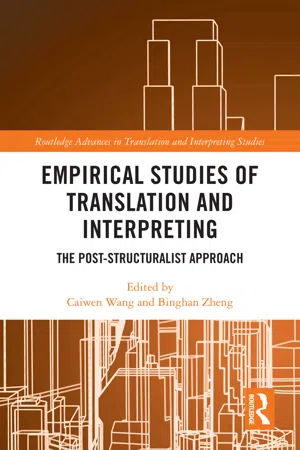Developments in International and National Domestic Abuse Policies and Practice
The international response to domestic abuse and violence has been shaped by changing conceptualisations of human security, involving a move away from state-centred (e.g. territorial, military) to person-centred conceptualisations (Rubio-Marín & Estrada-Tanck, 2013, p. 240). This shift has influenced the emergence of “positive obligations” for states to actively take measures to protect human rights, together with due diligence standards, which include “the state’s duty to investigate and punish violations of non-state actors and properly redress the victims” (ibid., p. 244). Such developments, however, need to be considered in the wider political context of public management frameworks wherein person-centredness is often articulated in terms of what individuals can do to protect themselves (self-responsibilisation) rather than what protections the state can offer, reflecting neoliberal concerns for self-reliance.
Support for those fleeing abuse and violence in the home has traditionally been provided by the charity sector and funded through a combination of public donations and government funding. In the United Kingdom, austerity policies rolled out since 2010 have led to one in six refuges closing and around 60% of women seeking places being turned away (The Independent, October 2019), a situation exacerbated by the COVID-19 pandemic. Despite the consultation in 2019 on enhanced services and legal obligations for local authorities, the Domestic Abuse Bill 2020 only reached its first reading in parliament on 7 July 2020, with many expressing concerns that it does not go far enough in ensuring that immigrant women are able to report safely and are not penalised because of their immigration status (The Guardian, March 2020). Though many of the impediments to support experienced by immigrant women are in common with those facing the wider population, such as childcare, housing, and transport, “each of these issues may also carry culturally-specific inflections, exacerbated by racism and class position” (Burman et al., 2004, p. 336); language and communication needs, while often acknowledged, are seldom a focus of political or sector-specific debate.
Difficulties in seeking help are doubtless compounded for those who have been forcibly displaced and who are consequently more likely than others to “lack a secure form of biopolitical personhood” (Parson & Heckert, 2014). This means that the scale of what may be termed the “labour of the self” they face in reconciling and moving on from experiences of abuse can be particularly burdensome, especially if prior experience of interpreter-mediated institutional encounters is perceived as negative (Tipton, 2019a). Regardless of background, the question of how limited English language–proficient individuals can take responsibility for themselves and even hold on to a sense of self when at their most vulnerable (McCormack & Salmenniemi, 2016) has particular resonance in the context of interpreter-mediated encounters, in part due to the high degree of self-reflexivity required, i.e. the ability to reflect on social circumstances and transform them (Green, 2011; Beck et al., 1994). The complex entanglements of the victim–interpreter relation therefore require a lens through which to identify ways in which forms of (structural) violence particular to the victim experience risk being perpetuated and how they can be mitigated. The affordances of an approach grounded in biopolitics are explored in what follows.
Biopolitics and Its Relation to (Interpreter-Mediated) Victim Support Services
The concept of biopolitics has a long history in the academy. Liesen and Walsh (2012) analyse what they term the “competing meanings” of biopolitics in the political sciences, observing a shift from the incorporation of theories and data from life sciences into the study of political behaviour and public policy, to more postmodern orientations that draw on the work of Michel Foucault (e.g. 1978) in an attempt to examine the power of the state on individuals. Through a series of lectures at the Collège de France in the 1970s, Foucault (2007, 2008) addressed “the themes of a peculiarly modern notion of governmental reason and its implications for the bio-political management of populations” (McNay, 2009, p. 55). As McNay observes, the lectures presciently reflected on notions of the self as enterprise, as well as the normalisation of biopower in the techniques of government and governance. Foucault developed the concept of biopower to “capture technologies of power that address the management of, and control over, the life of the population” (Holmer Nadesan, 2008, p. 2), though, as has been observed, the very scant references to the concept in Foucault’s oeuvre as a whole call into question the extent to which he provides a coherent theory of biopower (Adams, 2017).
In work that offers a reflection on the normalisation of biopower, Green (2011, p. 91) argues that victimisation and vulnerability have been socially constructed to serve political and economic interests in ways that have led to the foregrounding of the “ideal victim” (Christie, 1986), i.e. the type of victim that generates the most sympathy from society. The exclusion of (im)migrant women from much of the public debate on victim protection and victim support underlines the complex process of subjectification such women undergo, especially in relation to prominent social discourses on migration that portray them as potentially dangerous others and therefore less deserving of support.
Green also explores the relationship between the market economy and victimhood, drawing attention to the fact that victims of (all) crime have become a commodity; as such, they have “an exchange value that exists outside of any actual experience of victimisation” (2011, p. 107), leading to the development of a whole economy of victim services. Empirical and anecdotal reports of unevenness in the commissioning of interpreting services in both the statutory (e.g. HMIC, 2014) and voluntary sectors suggest hierarchies of practice are in o...
